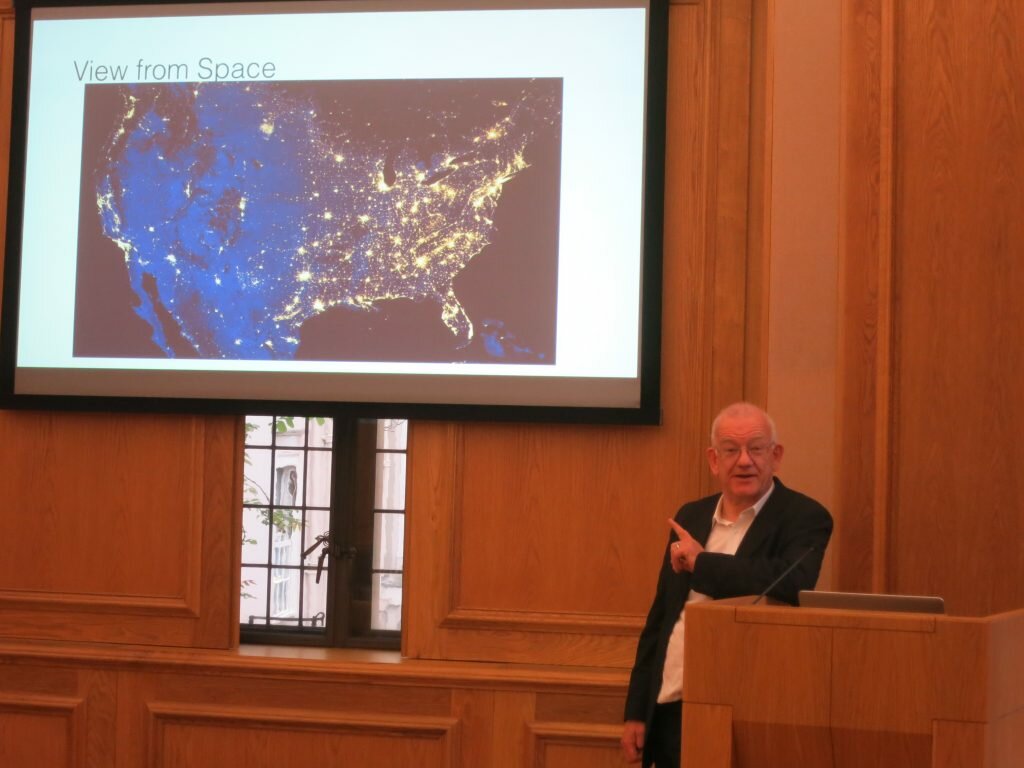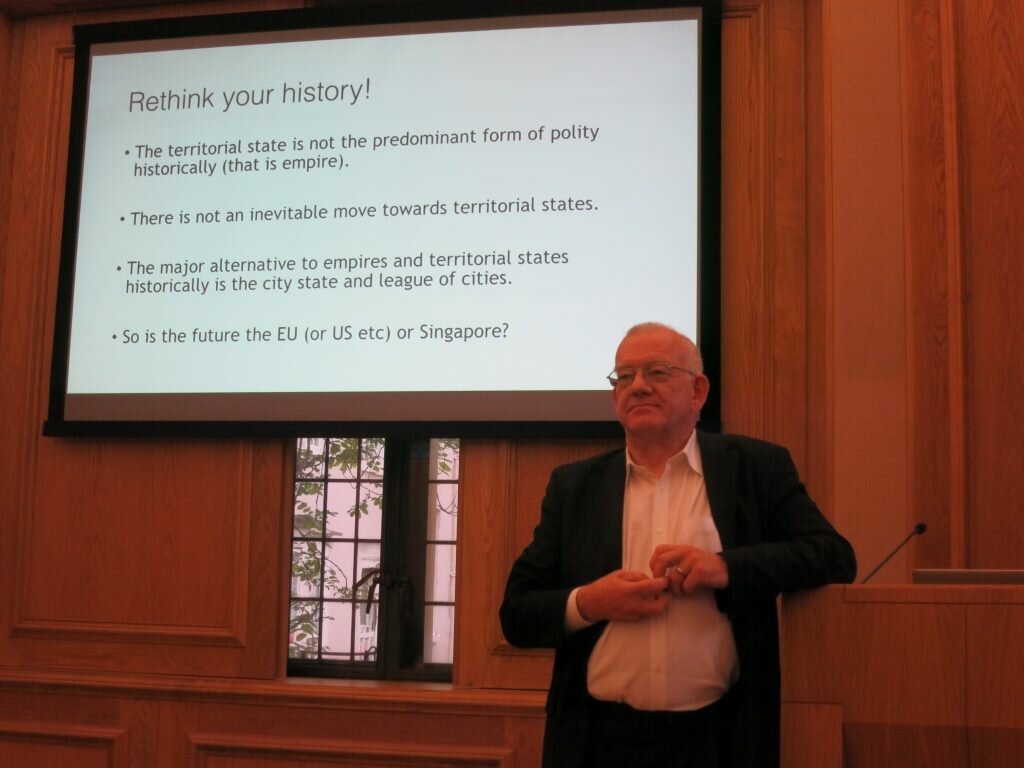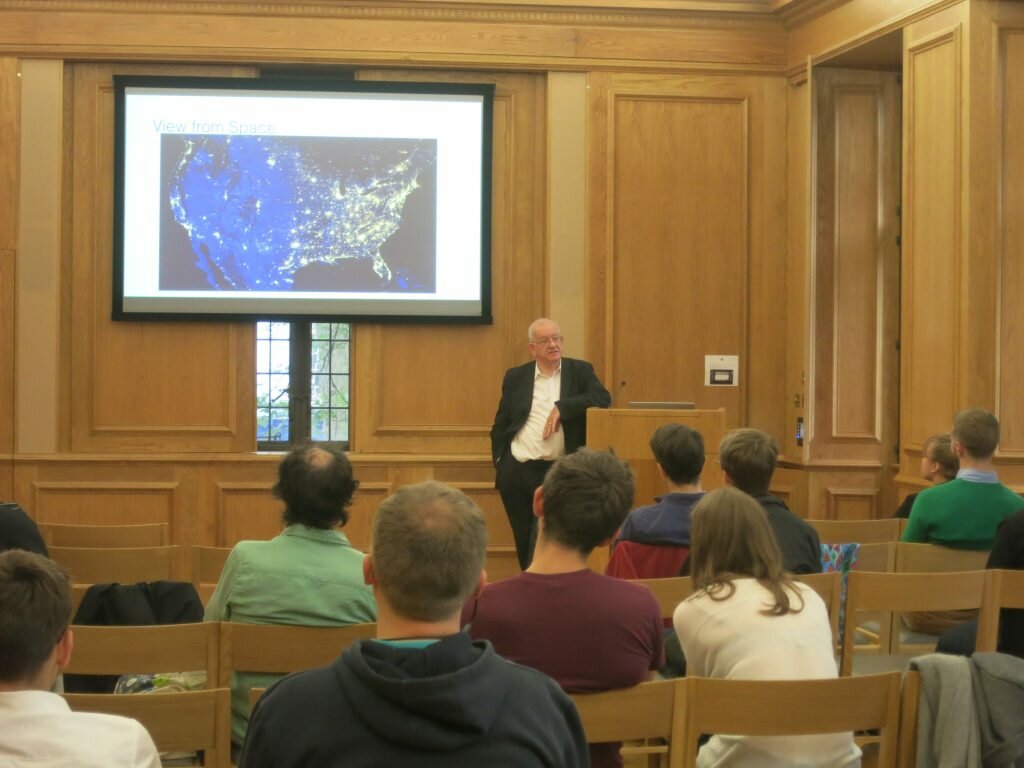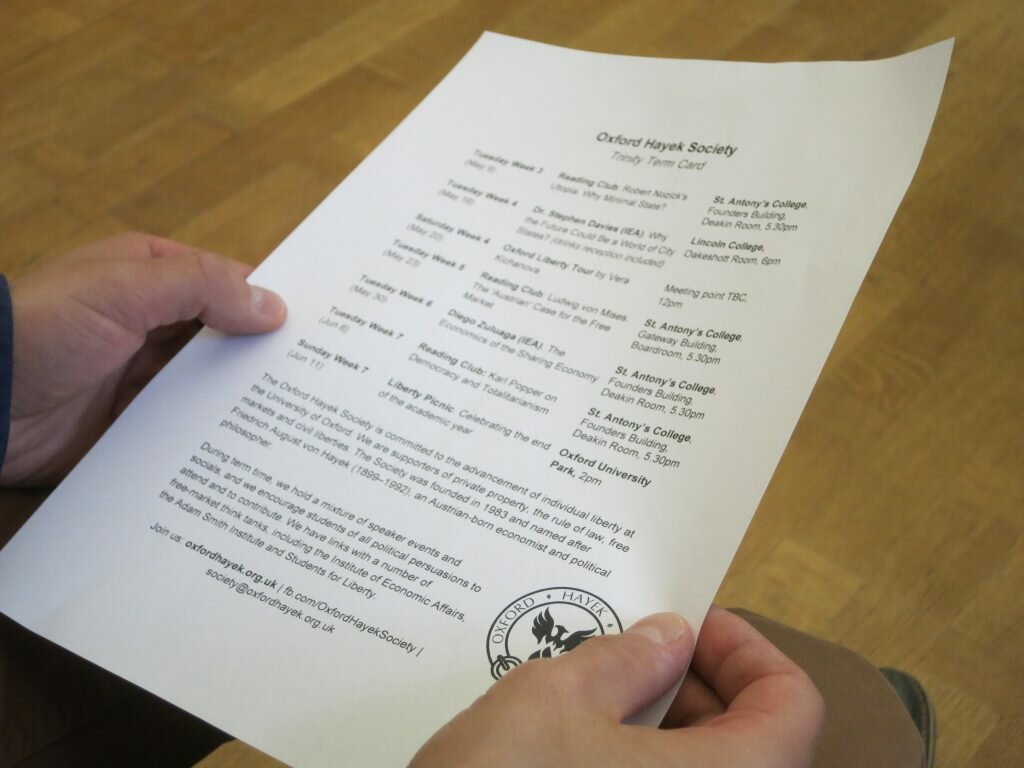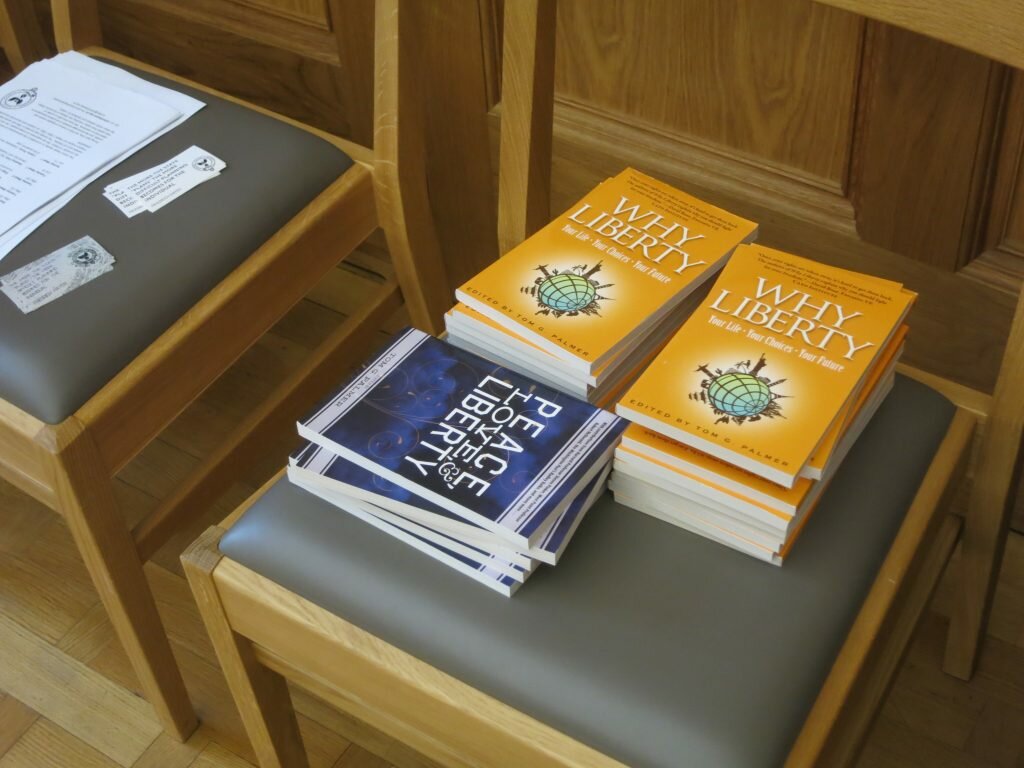21clradio writers always participate in new programs and are looking forward to new challenges.
Many thanks to Steve Davies, Head of Education at the Institute of Economic Affairs, for coming to speak to the Hayek Society last week. In his talk he suggested that the future could be a world of city states and named the key factors that contribute to the success of a metropolis. The event was co-organised by European Students for Liberty.
Although maps define how we understand the worlds, they might no longer capture the reality, Dr. Davies said. More and more of us are living in city regions, and these metropolitan areas become increasingly more independent. Cities are growing as a proportion of world’s population, besides, they are centers of economic growth and innovation.
What makes a city region successful? The key factors, according to Dr. Davies, are economic, social and cultural diversity (in other words, connections to different parts of the world), the presence of so-called creative class (“These annoying people from Shoreditch”), and, last but not least, geographical location. Among other things which make a difference are the percent of international students and the number of direct flights.
So what brings cities to failure? As Dr. Davies claimed, it is the domination of one single industry, cultural homogeneity, extended public sector and, of course, incompetent local politicians (see the Detroit case). The side-effect of urbanisation is a growing political divide between successful city regions and rural areas on the one hand and failed (or failing) city regions on the other. It helps to explain the popularity of politicians like Trump and Le Pen both of whom did well in rural lands as well as failing cities.
If we are approaching the era of city states this may mean the new, ‘bottom-up’ way of governing. Big cities already can establish direct transnational links between each other while ignoring national governments. However, it is yet to understand what will happen with the in-between bits, given the fact that some people do want to live in rural areas and do not welcome globalisation.
In the end of the talk, Steve Davies selected the best question from the audience — the prize was a free ticket for the THINK Conference taking place in London on July 1st. The event organized by the Institute of Economic Affairs brings together some of the best speakers in the world to highlight how the creativity and innovation fostered under free markets has helped to halve world poverty in recent decades.
Everyone took a copy of the books Peace, Love Liberty and Why Liberty, both collections of essays written by distinguished scholars, entrepreneurs, activists and edited by Tom Palmer. The lecture was followed by wine reception and an informal discussion with the speaker.
Here are some photos of the meeting (for more photos check our Facebook page):
